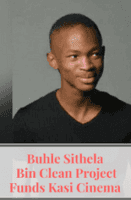We all started somewhere and have a story to tell. Jacques Sibomana is no exception, and relocating here from a foreign country has added interest to his story of success.
Jacques, who is 27 years old, was born in Rwanda but he fled to South Africa with his family at only eleven years old. Rwanda then was still nursing its wounds after the 1994 genocide that saw thousands of innocent lives perish. Children’s flesh was hanging from fences like a summer laundry, with blood dripping down like rain drops.
“My life story taught me that don’t limit yourself. I came down here as a refugee with nothing, and marched myself out of it. Your background does influence your future but it doesn’t determine it. Again, it’s up to you to decide to what level it influences it,” concludes Jacques. He is a true example that Africans need to first demolish the borders and boundaries they’ve created in their heads in order to push Africa forward.
The family ended up living in the Mpumalanga town of Nelspruit. “I started my first business about twelve or thirteen years ago in Nelspruit. I used to do lawn-mowing for my neighbours. My mom had no money for me to play video games, so I thought if I cut people’s grass then I’d have extra money to do whatever I wanted to do.”
Jacques is currently studying at Technology Institute – PMI for a Project Management Professional course. He previously enrolled at UNISA (University of South Africa) for a Business to Business Marketing course in 2009 and has a BA in Social Science at the University of the Western Cape and completed it in 2008.
He’s currently the Communications and Marketing Manager for a well-known, 125-year-old national organisation: the National Institute for Crime Prevention and the Reintegration of Offenders, or Nicro. In a country with much poverty and a high crime rate, they do important work.
“We work with youth at risk. We work with different communities all over the country. We work within prisons and with victim-support programs. It’s a holistic approach towards crime prevention. We focus both on perpetrators and victims.
“We also focus on those who haven’t committed crime – our young people at schools and in communities – so that we can have fewer people committing crime. We think that the future way to go is: prevention is better and much cheaper than cure.”
Jacques takes a very entrepreneurial approach to life and believes that social disadvantages shouldn’t set the community back, but rather move them forward.
“The lack of services in townships shouldn’t be seen as problems but rather as opportunities. If you have no access to water or you experience load-shedding then you should start reading about solar power and find ways to get your house off the Eskom grid.”
It doesn’t take a genius to know that an empty stomach doesn’t equal an empty mind, as long as that person has an enquiring mind. “For me, an open-minded person who grew up in a township has more opportunities than someone growing up in the city [suburbs] with everything available for them.”
He says opportunities lie in simple things, for example, “There’s a guy in Khayelitsha who started delivering medication to older people using his bicycle. He saw a challenge and used his bicycle as a solution. He could even start a courier company that focuses on that particular market,” adds Jacques.
He gives another example: “I was reading about a guy in Kenya who saw his mother getting sick from using charcoal. So, he invented his own charcoal made from sugarcane and river water. It’s cheaper and less toxic than the one they had been using.”
Jacques believes children should be given room to explore. “Growing up in a black community your parents and community always expect you to follow a certain career. They set up your mind … we’re not given enough room to explore what our talent is.
However, he takes an optimistic view: “I find that our dreams are never crushed. The things we think are our dreams get crushed. If that was your dream, then you’d find a way of doing it.”
Jacques advises that people should do something because of their love for it, not because of how much money it could generate them. “If you look at the history of successful people nobody has become rich from doing something they don’t love. They all find something they love and it later starts making money for them. If we allow people to nurture their talent instead of pushing them in our direction then we’ll answer lot of social problems we have.”
Jacques believes in the concept of ‘Do what you love and be loved for what you do’. “You won’t feel bad waking up in the morning and doing something you love. For example, look at how fast time flies when you’re playing with friends – because you’re doing what you love.”
Every ‘foreigner’ in our country, like Jacques, has to face the high level of xenophobia here. Jacques believes that violent, anti-social acts, such as these attacks, can never solve social ills that people face where they live. “If it was the solution then Africa would be the richest continent now. Similarly, if mob justice was a solution then places like Khayelitsha would be the safest places. We need to look beyond the direct response.”
No wonder Jacques has found fulfilment in working for a pro-active organisation like Nicro, encouraging young people to make good use of their talent and entrepreneurship instead of throwing away their lives in a destructive cycle of crime.
“Forget the statues, it’s the borders that have to fall.”
From the anti-xenophobia song No More by various artists, released in 2015.




